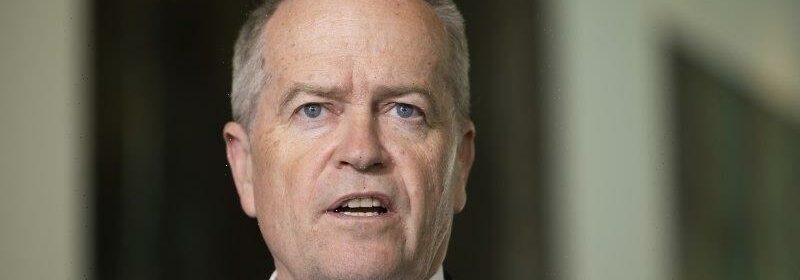‘Government wallet’ to display Medicare card, driver’s license in ‘one-stop shop’

Australians would be able to use their Medicare cards, display their driver’s licence, renew passports and enrol to vote on a one-stop-shop phone app similar to an Apple Wallet, under the federal government’s vision to digitise its services by transforming the MyGov app.
The app would also allow Australians to verify their identity with banks, phone companies and utilities providers, without handing over identity documents that are vulnerable to hacking and affected millions of people in last year’s breaches on Optus and Medibank.
MyGov, which is the online entry to services such as Centrelink, Medicare and the Australian Taxation Office, is used by 1.4 million Australians each day and has 25 million authenticated accounts.
Bill Shorten wants MyGov to be seen as a piece of critical national infrastructure.Credit:Alex Ellinghausen
The service has long been derided as clunky and unreliable, but Government Services Minister Bill Shorten wants it to be seen as a piece of critical national infrastructure akin to transport or hospital systems.
Almost three years after thousands of jobless Australians crashed the MyGov website trying to sign up for welfare during the first COVID-19 lockdown, Shorten on Tuesday released a review of the service led by former Telstra boss David Thodey.
The previous government committed $138 million annually toward MyGov over the last two years, after it failed to cope with user demand for Centrelink payments early in the pandemic. But that funding will run out in the middle of the year unless it is renewed in the federal budget.
The reviewers called for that cash to be maintained, citing unpublished independent analysis commissioned by Services Australia that forecasts an improved MyGov could deliver $3.2 billion to the economy over a decade.
Australians would be able to use their Medicare cards, display their driver’s licence, renew passports and enrol to vote.
Shorten said the government wanted to have Medicare cards available through the phone app – which it quietly released in December last year – by March.
It would also start negotiating with state governments about integrating features such as driver’s licences, and work with federal departments to investigate using the app for renewing passports, enrolling to vote or completing the Census.
“Australians could go to one app to deal with government [which] I think is a very exciting thing. People don’t have to remember all their passwords, they don’t have to deal with multiple government accounts,” Shorten said.
He also hoped it would protect Australians from data hacks that hit private sector organisations last year by allowing users to verify their ID with one MyGov login, similar to using Google or Facebook accounts to log in to other apps.
“The vision is that you’ve got sufficient ID in your government wallet that you can show a private sector business … and you don’t actually have to transfer your data to that private organisation,” Shorten said.
“For a lot of citizens that means that we improve their privacy and control over their data.”
But the review also warned that many Australians such as First Nations people without a birth certificate were excluded from digital identity systems, which can be clunky and difficult to use for those who can sign up.
It also cautioned there were fraud and security risks and called for an independent regulator to monitor the system and protect users’ privacy.
Thodey, who wrote the report, said cybersecurity would require continued investment. “Going digital is a critical part of delivering better services, but it does create risk around identity management, identity theft, it creates issues around privacy,” he said.
“My personal view of having worked in the industry for a long time, you’ve just got to keep at it.”
James Clark, executive director of privacy group Digital Rights Watch Australia, said there was insufficient detail in the report to address its concerns about mass surveillance arising out of the government controlling a system that would link different forms of personal information.
“While they have made mention of ensuring human rights and privacy are protected, they haven’t specified exactly what safeguards would be in place… You can’t just slap ‘safe’ on something and magically make it so,” he said.
Cut through the noise of federal politics with news, views and expert analysis from Jacqueline Maley. Subscribers can sign up to our weekly Inside Politics newsletter here.
Most Viewed in Politics
From our partners
Source: Read Full Article

